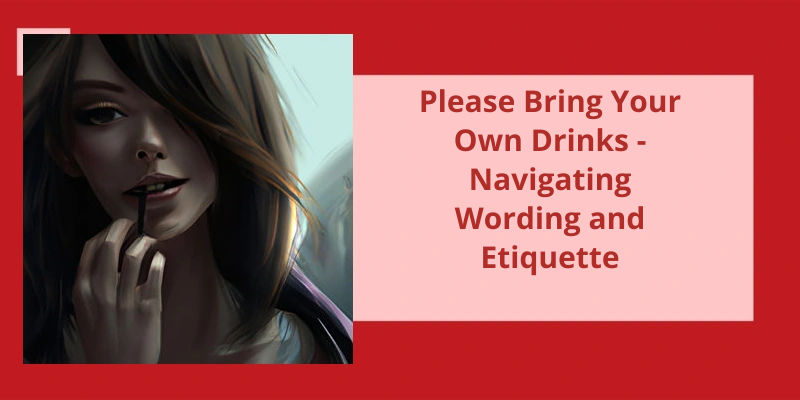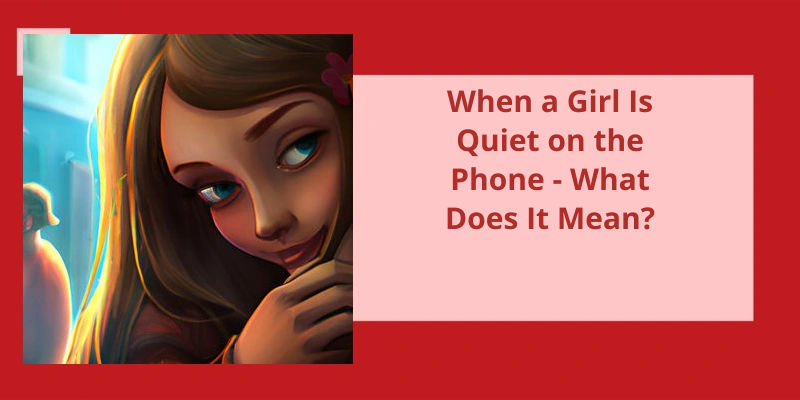As the anxiety of planning a party sets in, the last thing you want to worry about is running out of drinks. Fear not, for the solution lies in the simple yet effective wording of "BYOB" on your invitations. What once stood for solely "bring your own beer" has evolved into the inclusive term of "bring your own booze," encompassing all forms of libations. Whether your guests prefer a crisp Sauvignon Blanc or a bold Bourbon, allowing them to bring their own drinks guarantees a good time for all. So stop fretting and start inviting, knowing your party won't run dry with the power of BYOB.
How Do You Ask Guests to Bring Wine?
When it comes to hosting a gathering or dinner party, it can be challenging to make sure everything is taken care of. One of the things that can make things easier for you is to ask your guests to bring a bottle of wine. However, asking someone to bring wine can feel awkward and uncomfortable for some. But, it really shouldnt be that way.
It’s also a good idea to give your guests some options. Not everyone likes wine, so you can suggest that they bring their favorite beer or cocktail instead. This way, everyone will have something they enjoy, and youll have a variety of drinks for your guests to choose from.
Last but not least, it’s important to be specific about what you want. Let them know what type of wine youre looking for, such as a red or white, and what price range youre looking for. This will make it easier for them to choose a bottle that they know youll appreciate.
Be polite, sincere, and specific about what you want, and youll have a successful gathering with plenty of delicious drinks to go around.
Tips for Hosting a Wine Tasting Party at Home
Here are some helpful hints for hosting a wine tasting party in your own home, including selecting wines, preparing snacks, and creating a cozy atmosphere for your guests.
When hosting a party or event, it’s important to communicate any rules or guidelines your guests should be aware of – including whether or not they should bring their own drinks. But how can you do so politely? One popular method is simply writing “BYOB” on the invitation. However, there’s another way to approach things that might be more welcoming to your guests. Read on to learn about an alternative phrasing that you can use to let your guests know they’re welcome to bring their own beverages if they prefer.
How Do You Say Bring Your Own Drinks Politely?
In some cultures, bringing your own drinks to a party could be seen as rude or impolite. In these cultures, it’s customary and well understood that the host will provide all the drinks and refreshments. So, it’s always important to consider the cultural norms when planning a party or get-together.
If you want to encourage your guests to bring their own drinks, the best way is to make it clear from the beginning. Dont assume that everyone knows what BYOB means or how to interpret it. It’s always best to explicitly state what you mean so that there’s no confusion.
If youre sending out invitations, make sure to include a note about bringing drinks. This note could be playful or humorous, but it should be clear and to the point. You could say something like “Well provide the snacks, but youll need to bring your own drinks!” or “BYOB: Bring Your Own Beverage and lets get this party started!”
Again, make it clear and to the point.
It’s also a good idea to make sure that your guests know what kind of drinks youre offering. If youre providing water and sodas, for example, make sure to mention that in your invitation or announcement. This can help your guests plan accordingly and avoid any confusion or disappointment.
The Etiquette of Bringing Food to a Party How to Politely Decline if the Host Requests Guests Not to Bring Food.
When attending a party, it’s important to consider the host’s wishes when it comes to bringing food. If the host requests that guests not bring any food, it’s best to politely decline and respect their wishes. Thank them for hosting the party and offer to bring something else, like a bottle of wine or a small gift. Remember that being a good guest means being respectful and considerate of the host’s desires.
Now that we’ve covered the proper way to notify guests about paying for their own drinks at an event, let’s take a closer look at some other etiquette rules that will help make your gathering a success.
How Do You Say Pay for Your Own Drinks on an Invitation?
When it comes to inviting guests to an event, especially one that includes drinks, it’s important to make sure everyone is on the same page about who’ll be responsible for paying for those drinks. This can be a delicate matter to address, but thankfully there’s a simple solution that won’t offend anyone. The Etiquette Queen suggests that you include the phrase “cash bar” discreetly on the invitation, preferably in the bottom left or right corner, to indicate that guests will be expected to pay for their own drinks.
It’s important to note that there are a few different ways to word this phrase, depending on the type of event and the audience youre inviting. For example, if it’s a more casual gathering like a backyard barbecue, you might use a phrase like “drinks available for purchase” instead. However, for a more formal event like a wedding reception, the phrase “cash bar” is generally the most appropriate.
It’s worth taking the time to consider how your guests might react to the invitation language, as some people may take offense to being asked to pay for their drinks. However, by including this information upfront, you can avoid any confusion or awkwardness when it comes time to order drinks. Additionally, if there are certain guests who you don’t want to pay for their own drinks (such as close family members or the guest of honor), you can simply let them know beforehand that their drinks will be covered.
Ultimately, the key to successfully communicating this information to your guests is to be clear and concise. Keep the wording simple and direct, and make sure it’s prominently displayed on the invitation. If youre still unsure of how to best handle this situation, don’t be afraid to seek advice from a professional event planner or etiquette expert.
By including this information upfront in the invitation, you can avoid any confusion or awkwardness later on. Remember to keep the wording simple and direct, and don’t hesitate to seek advice if youre unsure about how to handle the situation.
When it comes to planning a wedding, there are many details to consider, including beverages. While some couples may choose to provide all of the alcohol for their guests, others may opt for guests to bring their own. However, it can be tricky to communicate this to guests without sounding impolite or rude. Thus, it’s important to consider the tone and wording of the invitation.
How Do You Tell a Wedding Guest to Bring Their Own Alcohol?
” Or you can simply state, “BYOB” on the invitation. However, it’s important to remember that it’s not necessarily expected for guests to bring their own alcohol to a wedding. Many couples choose to provide an open bar or select drinks for their guests to enjoy. If you do decide to ask guests to bring their own alcohol, make sure to communicate the details clearly and politely. One way to approach this is to include a note about bringing alcohol in a section of the invitation that’s solely dedicated to the event details. For example, if you’re having a backyard wedding, you may write something like, “Please note that we will be providing non-alcoholic beverages and a limited selection of beer and wine. Guests are welcome to bring their own spirits, if desired.”. This way the information is clearly communicated without being intrusive or demanding. It’s also important to consider the tone of the invitation. In these cases, it’s always best to include the message in a lighthearted and humorous way to avoid any potential awkwardness or discomfort. Some cultures prohibit the consumption of alcohol altogether, while others may require that only certain types of drinks be served. Make sure to consult with your wedding planner or a trusted advisor to ensure that you’re respecting these traditions and providing a thoughtful and inclusive experience for all of your guests. By communicating the details clearly and politely, considering the tone of the invitation, and being mindful of cultural and religious expectations, you can make sure that all of your guests are happy and comfortable on your special day. After all, a wedding is a celebration of love and unity – and the last thing you want is for your guests to feel left out or uncomfortable.
Source: How do you say BYOB politely?..
Now that we’ve established what BYOB means, let’s dive into it’s history and how it’s become a cultural phenomenon in the realm of dining and social events.
What Is the Term Asking Dinners to Bring Their Own Drinks?
The origins of BYOB can be traced back to the early days of prohibition in the United States when people would gather at secret locations to drink illegally. These gatherings were often referred to as “speakeasies” and guests were required to bring their own alcohol. Over time, the practice of bringing your own booze became more widespread and eventually became an accepted tradition.
BYOB has become increasingly popular in recent years as more and more restaurants and bars are looking to cut costs and reduce the amount of alcohol they need to keep on hand. Many establishments have taken the concept a step further by allowing guests to bring their own food as well, creating a more affordable and casual dining experience.
The most obvious downside is that guests who bring their own alcohol may overindulge and create a disturbance or safety risk. Additionally, more work falls on the establishment, as they must ensure appropriate serving sizes are being respected, and they also run the risk of not being fully compensated for the service provided.
The Etiquette of BYOB: What Are Some of the Do’s and Don’ts of Bringing Your Own Alcohol to a Restaurant or Gathering?
BYOB, which stands for “bring your own bottle” or “bring your own booze,” is a practice that allows people to bring their own alcohol to restaurants or gatherings. The etiquette of BYOB calls for some do’s and don’ts to follow. Do make sure to ask the host or the restaurant if it’s allowed, bring enough for you and maybe a little extra to share, and take the empty bottles or cans back with you. Don’t bring open containers, bring hard to serve drinks like frozen cocktails, or get too drunk and make a scene. Following these guidelines will ensure that everyone has a great time.
Incorporating BYOB into written invitations has become a popular way to indicate that guests are expected to bring their own drinks. However, for those who’re unsure of what the acronym stands for, it can be somewhat confusing. In this article, we will explore the etiquette surrounding BYOB invitations and discuss the best ways to navigate this common social situation.
How Do You Say Bring a Bottle on an Invitation?
Traditionally, BYOB is a way of indicating that the host of an event won’t be providing alcoholic beverages to guests. Instead, they’re inviting guests to bring their own preferred drinks to share.
For those attending an event that’s the BYOB label, it’s important to be respectful of the hosts wishes and bring a preferred drink that they’re willing to share. Some people prefer to bring a bottle of wine or a six-pack of beer, while others might bring a pre-mixed cocktail or a bottle of soda. It’s always a good idea to ask the host if there’s a preferred type of beverage they’d like their guests to bring.
When indicating that an event is BYOB on an invitation, it’s important to do so in an appropriate manner. This can be done by including the BYOB designation at the bottom of the invitation, along with any information guests need to know. For example, if the event is a barbecue or outdoor party, guests might be asked to bring their own chairs or blankets to sit on.
Etiquette Tips for Guests Bringing Their Own Drinks to a BYOB Event
- Bring a designated driver or make transportation arrangements beforehand
- Ask the host what type of alcohol they prefer or any specific drinks they’d like
- Don’t show up empty-handed, bring enough drinks for yourself and to share if possible
- Be mindful of any potentially sensitive or offensive alcohol labels
- Don’t overindulge or make a scene, respect the host’s home and other guests
- Help clean up after the party, including any empty bottles or cans
Conclusion
By labeling your invitations with the BYOB wording, you’re sending a clear message to your guests and setting the right tone for your event. So why not give it a try and watch as your party becomes the talk of the town because everyone had the chance to enjoy their drink of choice?






